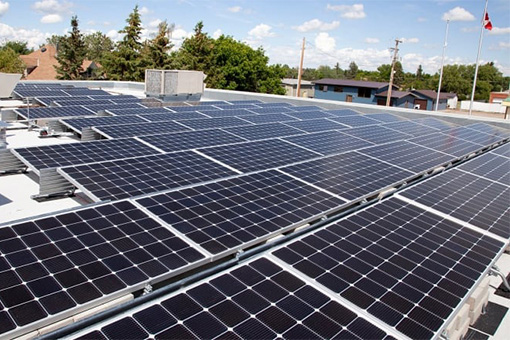Planning for Resilient Smart Energy Communities in Alberta
Organization: Quest
Location: Five communities in Alberta, Canada
Country: Canada
Other Organizations Involved: The Municipal Climate Change Action Centre (MCCAC); EQUS, a Rural Electrification Association (REA)

Background
Communities in Alberta, Canada, are vulnerable to the impacts of climate change with more frequent and intense floods, wildfires, droughts, and storms that are damaging energy infrastructure and disrupting energy supply. At the same time new energy technologies (distributed generation, smart grid, storage, etc.) open new possibilities for resilient energy systems.
The objective of the Building Resilient Smart Energy Communities initiative is: 1) to align and integrate the respective processes of municipalities and energy utilities (gas, electric, thermal, and water) for adaptation and resilience planning; and 2) to explore how new energy technologies can support local resilient energy systems.
Goals
Participating municipalities and energy utilities will identify climate hazards, risks, and vulnerabilities, be capable of evaluating and deploying adaptation measures, and know where to target investments to enhance asset management, reduce infrastructure vulnerability, and avoid prolonged negative community economic impacts. The robust transfer of knowledge will also aid other communities and utilities in using the lessons learned and assessment tools to conduct their Resilience Assessments to inform their own adaptation plans. This will contribute to build more resilient energy infrastructure to adapt to, and prepare for, increasing extreme weather events.
Main activities
- Conduct a literature review and research on resilience and energy infrastructure management, conduct in-depth qualitative interviews with various energy utilities, develop and incorporate a Resilient Energy System component to QUEST’s Resilience Assessment Tools;
- Prepare and deliver five workshops with two facilitators, prepare five Community Resilience Assessment reports, including climate data and hazard, and energy asset mapping;
- Prepare a user-friendly and publicly available Primer on Extreme weather events and energy infrastructure in Alberta, that analyzes data and information collected;
- Disseminate the Primer with the help of project partners.
Results
More Alberta municipalities see the value of conducting resilience assessments to mitigate risks and disasters related to extreme weather events. Enhance cooperation between utilities and municipalities in Alberta to build resilient energy infrastructure.